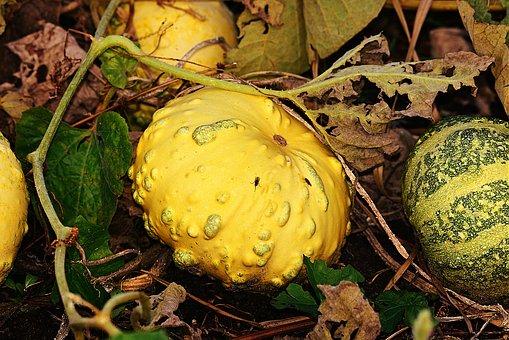
How to Grow and Harvest : Squash
Before you invest in your squash plant this season, make sure you have the right squash plant for the right season. There are varieties of winter squash and summer. Summer squash are busy and large! They will not grow vine like the way that a winter squash does. There are straight neck, crooked neck and zucchini all in the summer squash group. What does “Squash” mean? The original meaning of the word comes from askutasuash which means, a green thing eaten raw. Why eat squash? This little fruit will provide you with Vitamin K, C, A, Potassium, B6, Folate, Magnesium, Protein and Niacin.
Growing:
Squash plants require full sun exposure, as well as a lot of water. They prefer the heat, but are durable plants that can withstand more unfavorable temperatures. If the heat persists for too long, your squash plants will start to suffer and wilt as a sign of stress. Don’t worry, overnight they will likely perk back up again. If not, consider providing a temporary shade covering for the plant until they are stable again.
Watering:
Consistent watering is essential for growth, it is important to water regularly but pay extra attention when the fruits begin to form, you may need to water very aggressively as well. Water once a week and provide a minimum of 1 inch of water. The soil should be moist to the touch at least 4 inches down. If your fruit develops and is misshapen, that means it did not receive enough water during growth, be sure to increase the amount of water provided for future growth.
Pests/Diseases:
Powdery mildew and bacterial wilt are the two most common diseases that affect squash plants. Simply keep the plants well watered and aerated by attempting to leave plenty of space between plants.
Blossom end rot is another common disease that squash experiences and it develops from uneven moisture levels in the soil. The blossom end of your squash will turn black, and rot. To correct this, water deeply and apply a layer of mulch over top of the soil to contain moisture.
Squash bugs, as suggested by the name are also the most common pests to damage your squash plants. Squash bugs will be obvious, they are large and brown with flat backs and are big enough for the eye to see. They will suck the juice from your squash plants causing yellow spots that will eventually become brown. It is imperative that you recognize squash bugs before they mature because they become very difficult to get rid of. You can place a plank of wood, or piece of shingle into the garden the leave it overnight near the squash plant. In the morning, the bugs will have congregated underneath it and you can squish them before disposing of the wood.
Harvesting:
These plants will grow quickly, especially if they are in hot environments. In peak summer these plants can sometimes produce multiple squash for you each day. You’ll want to harvest squash when they are small, as they grow in size they will lose flavor and seeds will begin to harden. The best time to harvest squash is when the fruit reaches 6-8 inches in size. Please check your plant daily for mature fruit and remove to encourage the production of more fruit. You will likely begin to see fruit produce on the plant once it has flowered. It is best to cut off the squash from the plant rather than pull it off, this will ensure you do not damage the vine and another fruit can form. If you are unable to harvest the fruit once it is ripe and it begins to rot on the plant, cut it off immediately.
Did you know that squash flowers are edible, they taste just like the squash itself and can be fried and added to a dish. If you’re a fan of banana bread, suggest trying zucchini bread! It is a simple recipe and creates a very flavorful and moist baked treat. If you are someone who also likes to limit the amount of carbs in your diet, I would also recommend making zucchini spaghetti.
Too much squash, too little time? That’s okay, you can freeze it! Wash it, and cut it into cubes. Blanch the squash for 3 minutes and immediately put it into ice cold water. Put into freezer safe containers and freeze until ready for use.